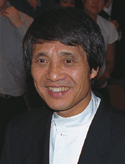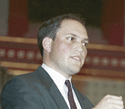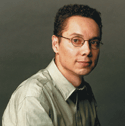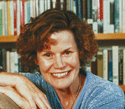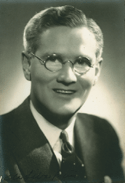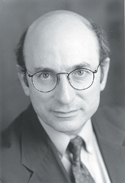
 |
||
The Yale Alumni Magazine is owned and operated by Yale Alumni Publications, Inc., a nonprofit corporation independent of Yale University. The content of the magazine and its website is the responsibility of the editors and does not necessarily reflect the views of Yale or its officers. |
Washington governor Gary Locke '72 praised America’s diversity as “the wellspring that feeds our nation’s soul” in a Chubb Fellowship address at the Law School auditorium on October 18. Locke, a son of Chinese immigrants who is the first Asian-American to be elected governor of a mainland state, defended the practice of affirmative action in his address. “On test scores alone, I probably would not have been admitted to Yale,” he said. “Yale took a hard look at me and gave me a chance.”
Acclaimed Japanese architect Tadao Ando talked about his minimalist buildings on October 11 in the Art Gallery Lecture Hall. “Right from the first building that I built,” said Ando through an interpreter, “I wanted to make things that we don’t see but that exist around us—air, water, light—I want to make these evident with the architecture I designed.” Ando, a former visiting professor in the School of Architecture, was on campus as a Chubb Fellow.
Regardless of his role in the September 11 attacks, Saddam Hussein should be ousted from power because of the threat he poses to the U.S. and other countries, journalist and Middle East scholar Michael Rubin '94, ‘99PhD said in a lecture in Battell Chapel on October 21. “I’m very afraid that if we don’t deal with Saddam Hussein on our terms, he will come to us and deal with us on his,” said Rubin, a fellow of the Washington Institute for Near East Policy who has traveled widely in the Middle East. His talk was part of a faculty-organized series called “Democracy, Security, and Justice.”
From gadget salesman Ron Popeil to the engineering of diapers to the history of hijacking, the conversation at a Jonathan Edwards master’s tea with New Yorker writer Malcolm Gladwell on October 22 was as wide-ranging as Gladwell’s work. The author talked about how he got to The New Yorker, about how his articles are written and edited, and about where he gets his ideas. “The key thing is to hang out with people who will lead you to interesting ideas,” he told an overflow crowd. “I try to be friends with people who are not from my world.”
Judy Blume, author of beloved adolescent novels such as Are You There, God? It’s Me, Margaret and Forever, visited Calhoun College for a Master’s Tea on October 23. When Blume started writing for children in the late 1960s, she was taught that her young characters should not eavesdrop or question authority. She vowed not to follow the advice. “When I was a kid, there were no books for children about real life and real families,” she said. “I wanted to let young people know that someone else understands what they’re going through.”
The Peabody Museum was the setting for a ceremony on October 18 to dedicate the 2001 Connecticut State Register and Manual to the late Hiram Bingham '25. A son of the archaeologist who discovered Machu Picchu in Peru, the younger Bingham won posthumous acclaim for having issued thousands of visas to Jewish refugees while working for the state department in wartime Marseilles—defying department policy. “Bingham is a true hero who rose to a dangerous occasion, thought for himself, and did what was right,” said President Richard Levin at the ceremony. Donald Cohen '66MD, the Sterling Professor of Child Psychiatry, Pediatrics, and Psychology, died of ocular melanoma, a rare form of cancer, on October 2. Cohen, who directed the Yale Child Study Center from 1983 until his death, was 61 years old.
A native of Chicago, Cohen earned his bachelor’s degree at Brandeis University before coming to the School of Medicine. He returned to Yale as a faculty member in 1972. As a researcher, Cohen was known for pioneering a neurobiological approach to diseases such as autism and Tourette’s syndrome. “Donald Cohen really moved child psychiatry into the biological era, but he continued to put emphasis on the psychological and social aspects affecting child development,” said School of Medicine dean David Kessler. In addition to his own research, Cohen is remembered for innovations as the leader of the Child Study Center, most notably an initiative to train police officers on the best way to respond to children who have committed, witnessed, or have been the targets of violent crime. He also was praised as a teacher who helped train important scholars at the center. But psychiatry professor James Leckman said Cohen kept his ability to work directly with children. “To be a good child psychiatrist, you have to be a child at heart,” said Leckman, “and Donald was always willing to be sort of down there on the floor with the kids.” |
|
|
|
|
|
|
|
|
©1992–2012, Yale Alumni Publications, Inc. All rights reserved. Yale Alumni Magazine, P.O. Box 1905, New Haven, CT 06509-1905, USA. yam@yale.edu |
||

